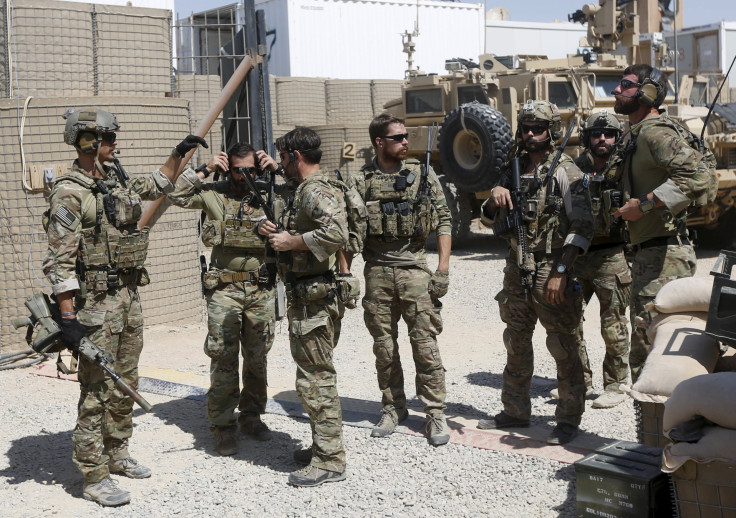After US Troop's Death In Afghanistan, Pentagon Says Soldiers Are In Combat 'Situation,' But Not 'In The Lead'

U.S. troops stationed in Afghanistan are said to be in a combat “situation,” but not in a combat role, according to a Pentagon spokesman speaking late Thursday. The White House has tried to make that very distinction the past 18 months as it has sought to distance itself from the heavy losses sustained during the long Middle East wars over the past 14 years and amid recent commitments to place military advisers in Iraq, Afghanistan, Syria and Ukraine.
The most recent example of the U.S. administration playing down the Pentagon’s role in foreign wars comes just days after fierce fighting in Afghanistan saw one Special Forces soldier killed and two injured.
Pentagon press secretary Peter Cook said the Green Beret troops who were involved in skirmishes in Helmand province in the south of the country were in a "support backup" role — training, advising and assisting their Afghan counterparts, who lead in fighting the Taliban, according to a report by the Hill Friday.
"This is a combat situation, but they're not in the lead," Cook said during the briefing.
The soldiers, from the 19th Special Forces Group, initially came under fire for a few hours Tuesday as they waited for reinforcements. One medical evacuation helicopter made it through the fighting but was unable to take off after its rotor hit a wall. Another helicopter was waved away due to the severity of the fighting.
Special Forces members who were involved in the fight said the death of Army Staff Sgt. Matthew McClintock happened because the response team that is tasked with helping other groups that are under fire was not given permission to launch out of fear of civilian casualties, according to Rep. Ryan Zinke, R-Mont., a retired Navy SEAL, who Thursday requested a formal briefing from the Pentagon.
Cook denied the delay in providing assistance to the troops who were under fire.
© Copyright IBTimes 2025. All rights reserved.





















